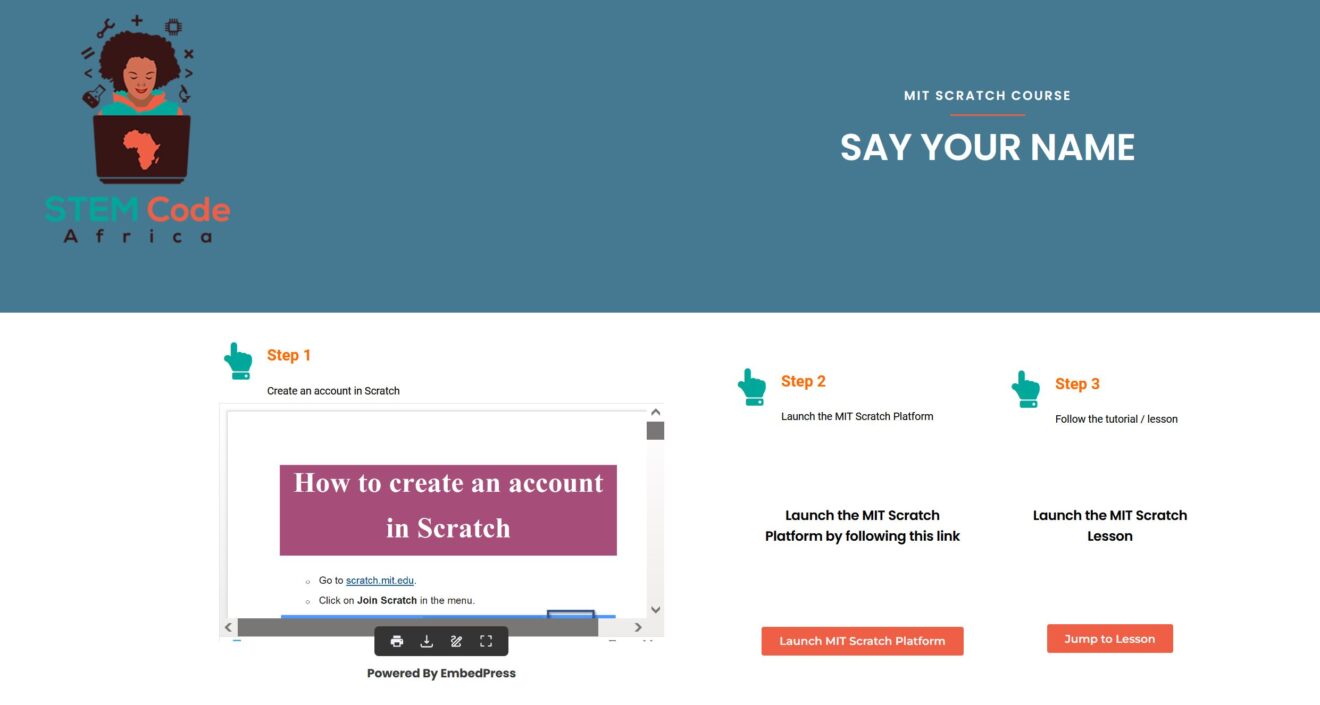Isolated at home during the height of the COVID-19 pandemic, Cape Town-based developer Brandon Wilson decided to do something important with his life and give back to his community.
He built EduHub, a mobile application that helps students, especially those from disadvantaged backgrounds, access relevant study material – lessons in Maths, Science, and English, explanatory videos, past papers, memorandums, marking guidelines, worksheets, and textbooks in video or PDF format, in order to help them prepare for their exams, all through low data costs and easy to navigate menus.
Since then the app has continued to grow in terms of its reach and is now being used in 22 rural schools thanks to a partnership with education non-profit Khula Foundation, but Wilson was not done.
Six weeks ago he launched his next initiative, a way to bring early coding skills to young South Africans. He told Hypertext that the earlier young people begin accessing these skills and familiarise themselves with the digital world, the better.
STEM Code Africa is an online platform that grew out of Wilson’s work on EduHub and offers simplified and interactive coding course materials tailored to children. Its aim, according to Wilson, is to make learning coding accessible while presenting the skill in a “kid-friendly” manner.
“Learning to code at an early age not only prepares children for future careers but also enhances their logical and creative thinking skills. However, many families find it challenging to navigate the world of coding education for kids, often wondering where and what programming language to start with,” writes Wilson about the new project.
STEM Code Africa leverages MIT Scratch, a coding language created to teach children the very foundation of coding and how to understand conditional arguments using a completely textless manner – fun and colourful drag-and-drop blocks.

Modules to learn coding are presented as a set of PDF instructions, which initially show students how to launch the Scratch platform and begin the lesson. Lessons begin in the most beginner-friendly fashion, with “Say Your Name” which informs on how you can begin using Scratch to create a basic programme where a cat avatar will say your very own name.
Other lessons include “Dancing Letters,” “Guess the Secret Number” and even one that teaches you how to programme a game of Pong. Even though Scratch is designed for children for ages eight to 11, it is a robust programme and can be used by older children and even adults with little computer experience to begin learning how to code.
“The STEM Code Africa ethos is that coding and development should be accessible to all children across Africa. The platform serves South African children, and youth from other African states, by providing free courses to help students grasp the fundamentals of coding, web 3.0, A.I., and Machine Languages. Ultimately, the organization believes their work with children will contribute to Africa’s technological future,” Wilson explains in a press release sent to Hypertext.
Wilson is now working with the Khula Foundation and EOH, a technology services company, to bring both EduHub and STEM Code Africa to more learners at more schools. Coding itself has been identified by the Department of Basic Education as an upcoming addition to the basic education curriculum. The department is already piloting coding and robotics modules from as early as Grade R, but wider rollouts to schools across South Africa are still a ways away.
“As someone who was educated through quintile schools in the Western Cape, my goal is to make a difference in educational accessibility through projects like EduHub and STEM Code Africa,” said Wilson.
STEM Code Africa is completely free and only requires a notebook or a tab to use along with MIT Scratch. Once learners complete the Scratch courses they can move on to begin learning Python, and continue their coding skills journeys.
The website can be accessed here.
[Image – Photo by Kelly Sikkema on Unsplash]

